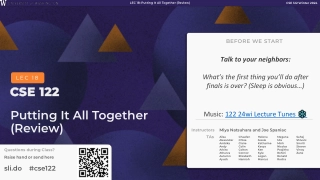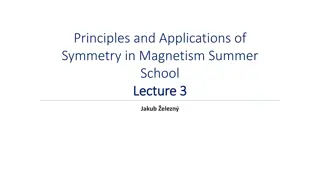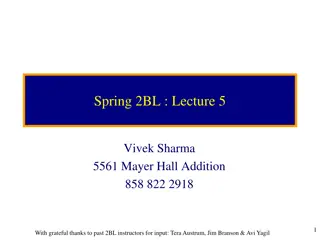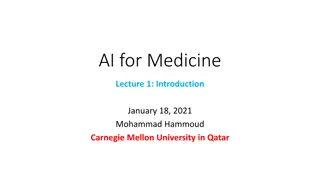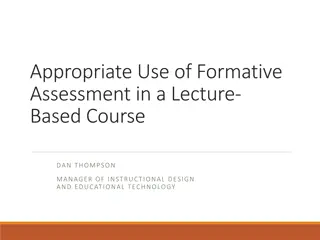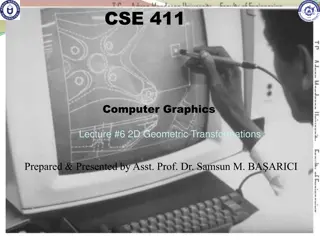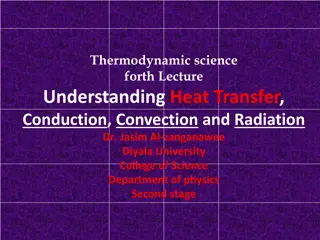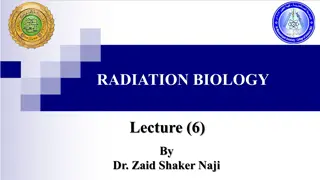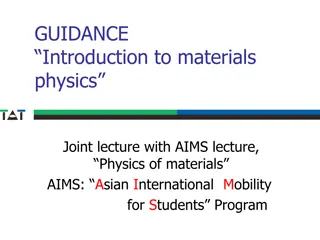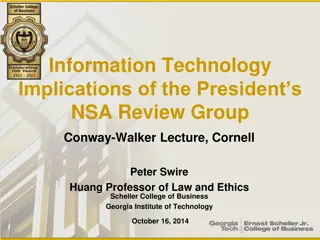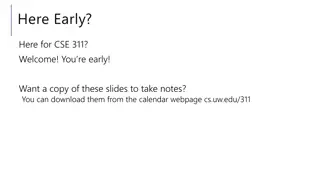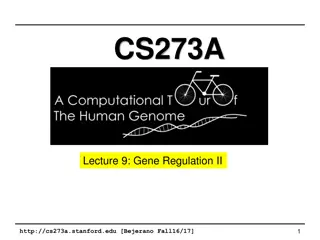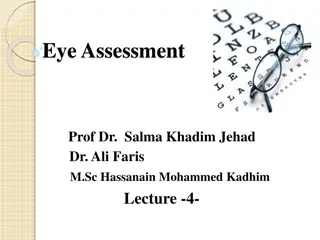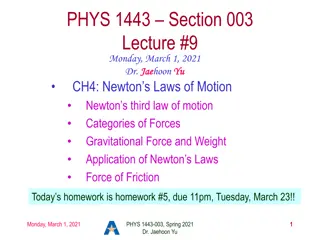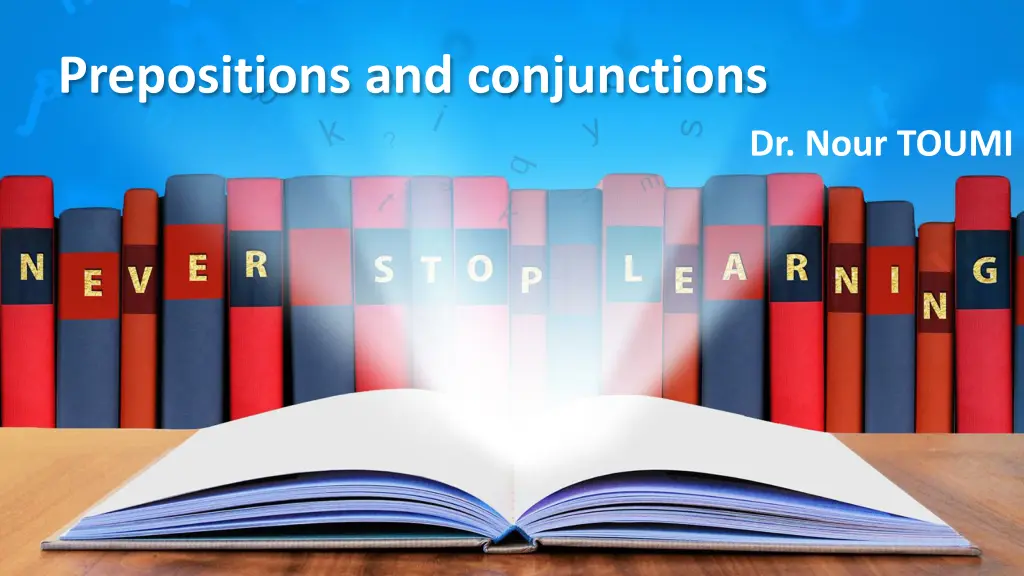
English Prepositions and Conjunctions Guide
Enhance your understanding of prepositions and conjunctions in English with this comprehensive guide. Learn about common preposition combinations, associated verbs and nouns, and how to use them effectively. Explore different types of conjunctions and their usage in English sentences. Improve your language skills and grasp the nuances of English grammar effortlessly.
Download Presentation

Please find below an Image/Link to download the presentation.
The content on the website is provided AS IS for your information and personal use only. It may not be sold, licensed, or shared on other websites without obtaining consent from the author. If you encounter any issues during the download, it is possible that the publisher has removed the file from their server.
You are allowed to download the files provided on this website for personal or commercial use, subject to the condition that they are used lawfully. All files are the property of their respective owners.
The content on the website is provided AS IS for your information and personal use only. It may not be sold, licensed, or shared on other websites without obtaining consent from the author.
E N D
Presentation Transcript
Prepositions and conjunctions Dr. Nour TOUMI
Objectives 1. Understand and use preposition combinations 2. Understand and use the different types of conjunctions used in English
Preposition combinations Which prepositions collocate with which nouns/verbs? Prepositions Commonly associated verbs Commonly associated nouns against act; check; compare; decide; direct; protest; vote; warn arguments; case; decisions; struggle as consider*; define*; know*; regard*; see* for account*; allow*; apply*; argue; ask; look; prepare; require*; stand; vote; blame; pay basis; case; evidence; need; opportunity; reason; precedent; preference; quest; stimulus
from benefit; suffer; come; derive*; differ; exclude*; subtract*; learn; distance; results; transition in divide*; engage*; express*; include*; involve*; participate; result; see*; specialize; succeed; believe; invest changes; decrease; differences; error; increase; reduction; rise; shift into divide*; enter; incorporate*; segment* insight; investigation; research of approve; compose*; conceive*; consist; convince*; dispose; know; made*; think basis; complexity; exploration; extent; idea; lack; means; number; part; role; significance
on base*; concentrate; decide; depend; expand; experiment; insist; occur; operate; rely; work demand; effect; emphasis; influence; law; reliance; research; pressure; section; work to adapt; add*; adjust*; assign*; belong; consent; lead; react; refer; relate*; respond; turn approach; attention; key; response; relation; right; shift with agree; associate*; compare*; connect*; couple*; deal; equip*; involve case; comparison; ease; obsession; problem out point
The bad weather added to the teams difficulties. Yu (1997) agrees with Martin and Jenks (1989). Monetarism is an economic policy associated with Mrs Thatcher. The survey showed that 65 per cent believed in life after death. He blamed unfair questions for his poor exam results. She dropped all her hobbies to concentrate on her work. Parliament consists of two Houses: the Commons and the Lords.
The company depends on IT for a rapid flow of sales data. Modern computers derive from wartime decoding machines Trees are divided into two main types: conifers and deciduous. Far more money needs to be invested in primary education. All successful students learn from their mistakes. Goods delivered in April must be paid for by 30 June. Goodson (2001) points out the dangers of generalization. This department specializes in French poetry
Conjunctions are words that join parts of the sentence. They may join two similar parts of speech, such as two adjectives, two verbs or two nouns. Conjunctions may also connect two clauses. Coordinating conjunctions unite two independent clauses and subordinating conjunctions join one dependent clause and one independent clause.
Coordinating conjunction Conjunction Function Example and To add a similar or equal idea They eat a variety of fish and vegetables, and they eat lightly. for Connects a reason to a result Japanese people live longer than other nationalities, for they eat healthful diet.
nor Connects two negative sentences They do not eat a considerable amount of meat, nor do they eat diary products. but Connects two different ideas Diet is one factor in how long people live, but it is not the only factor. or To add an alternative possibility People should limit the amount of animal fat in their diet, or they risk getting heart disease.
yet Connects equal contrasting ideas Cigarette smoking is a factor in life expectancy, yet Japanese and other long-lived Asians have a very high rate of tobacco use. so Connects a result to a reason Doctors said that stress is another longevity factor, so try to avoid stress if you wish to live a longer life.
Do not begin a sentence with the coordinating conjunctions and, but, so, or, yet. For is poetics. It means because. For is rarely used as a conjunction in modern English. Nor, used by itself, usually begins a sentence. It usually followed by do or does and then the subject. (eg., I don t like opera . Nor do I like chamber music)
As a conjunction, yet means but. It is used more often in writing than in speaking . Use a comma before the conjunction when 2 independent clauses are joined. You don t need to Use a comma if they have the same subject.
Correlative conjunctions Correlative conjunctions are used in pairs, in order to show the relationship between the ideas expressed in different parts of a sentence. For instance, in the following example, the expression either ... or is used to indicate that the ideas expressed in the two clauses represent two alternative choices of action.
both ... and He is both intelligent and good-natured. Both john and Bill are excellent either ... or I will either go for a walk or read a book. neither ... nor He is neither rich nor famous. Neither the professor nor the students understood the problem.
not only ... But also She is not only clever, but also hard-working. I not only lost the game but also hurt my ankle rather ... than I would rather go swimming than go to the library
whether ... or Have you decided whether you will come or no Whether you earn an A or get a lower grade Not ..but Hector did not lose money at the casino but he did not win any either
Connecting adverbs Connecting adverbs are often used to show the relationship between the ideas expressed in a clause and the ideas expressed in a preceding clause, sentence or paragraph. I wanted to study; however, I was too tired. We knew what to expect. Therefore, we were not surprised at what happened.
Conjunctive adverbs To add a similar or equal idea also besides, furthermore, in addition, moreover, likewise Community colleges offer preparation for many occupations; also/ besides/ furthermore/ moreover/in addition, they prepare students to transfer to a four-year college or university.
To add unexpected or surprising continuation however, nonetheless, nevertheless, still, The cost for attending a community college is low; however /nonetheless/nevertheless/still, many students need financial aid. Add a complete contrast in contrast, on the other hand, Tuition at a company college is low; on the other hand/ in contrast, tuition at private schools is high
To add an expected result accordingly, as a result, consequently, hence, therefore, thus, Native and non-native English speakers have different needs; accordingly/ as a result/ consequently/ hence/ therefore/ thus, most schools provide separate English classes for each group. To add an example for example, for instance, Most colleges now having a writing requirement for graduation; for example/for instance, students must pass a writing test before they register for their final semester.
Subordinating conjunctions Reason (why) as because since I cannot take evening classes as I work at night. because since Purpose (what for) So that In order to Many people emigrate so that their children can have a better life. in order that
Partial contrast although even though though I love my brother although we disagree almost about everything. even though though Contrast (direct opposition) while whereas My brother likes classical music, while I prefer hard work. whereas
Differing Prepositions and Conjunctions Meaning Preposition Conjunction for this reason because of because in spite of this despite although at the time when during while in a similar way like as if
In the following examples, the objects of the prepositions, and the verbs of the subordinate clauses are underlined. Preposition: They were upset because of the delay. Conjunction: They were upset because they were delayed. Preposition: Despite the rain, we enjoyed ourselves. Conjunction: Although it rained, we enjoyed ourselves.
Preposition: We stayed indoors during the storm. Conjunction: We stayed indoors while the storm raged. Preposition: It looks like rain. Conjunction: It looks as if it will rain.
It should be noted that like is sometimes used as a subordinate conjunction in informal English. e.g. It looks like it will rain. However, this use of like is considered incorrect in formal English
Please check Oshima, A., & Hogue, A. (2006). Writing academic English (4th ed.). The Longman Academic Writing Series. Pages: 169, 183-193, 291-299.

